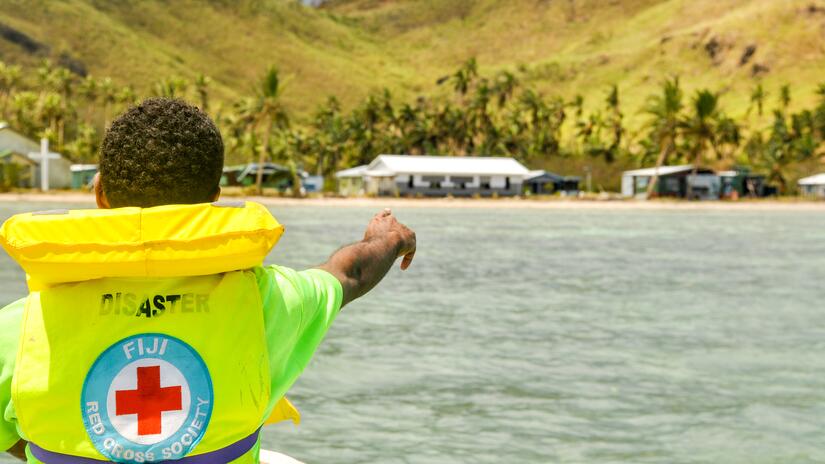Suva, 23 February 2023 – The escalating impact from climate hazards will destroy decades of development progress in the Pacific if there is not a major shift from disaster response to anticipatory action, the International Federation of Red Cross and Red Crescent Societies (IFRC) concluded during this week’s Red Cross Pacific Leaders Meeting in Suva, Fiji.
Pacific island states make up the majority of countries that suffer the highest relative losses – between 1 percent and 9 percent of their GDP – from the impact of natural hazards.
Katie Greenwood, IFRC’s Pacific Head of Delegation, said:
“We have a lot of humanitarian challenges in the Pacific which we need to address together as a region and not only as the Red Cross in each country.
Climate change and disasters are all constantly affecting our region in some shape or form. We need to ensure resources, financing, and knowledge to address the challenges of climate change are available to be able to better anticipate how we can prepare and respond.
To effectively manage the risks of disasters, we need to focus on investing in disaster response as well as resilience building actions ahead of disasters which also supports risk-informed development. As a result, we can minimise the human and economic losses that can set back a country’s development progress."
Climate change is exacerbating underlying vulnerabilities which will continue to degrade livelihoods and resilience as the frequency and intensity of extreme weather events such as cyclones and floods are set to increase in the coming decades.
Further compounded with longer term, severe events such as droughts, sea level rise, king tides and saltwater intrusion, the Red Cross must lead, with their communities across the Pacific, on anticipation and preparedness for the changing nature of disaster impact.
“More must be done in terms of anticipatory action, adaptation, and preparedness, to save lives and livelihoods.”
The Red Cross in the Pacific are Australian Red Cross, Cook Islands Red Cross, Fiji Red Cross, Kiribati Red Cross, Marshall Islands Red Cross, Micronesia Red Cross, New Zealand Red Cross, Palau Red Cross, Papua New Guinea Red Cross, Samoa Red Cross, Solomon Islands Red Cross, Tonga Red Cross, Tuvalu Red Cross and Vanuatu Red Cross.
For more information or to arrange an interview, contact:
In Suva: Soneel Ram, +679 9983 688, [email protected]

